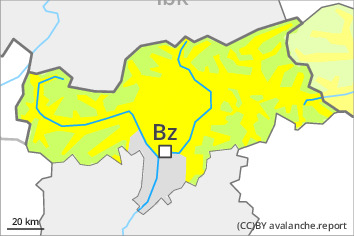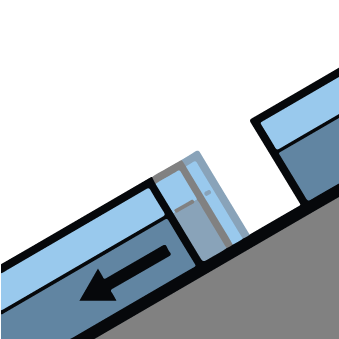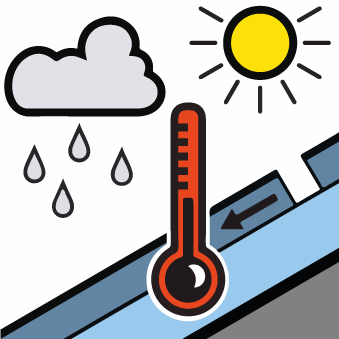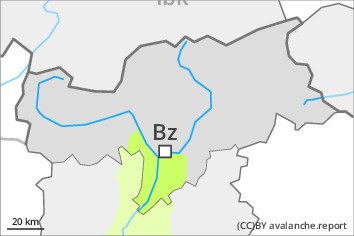
Danger level
 | 2600m |
|  |
|  | ||||
|  |
|  |

Decrease in danger of wet avalanches as the temperature drops. Wet and gliding snow require caution.
More medium-sized and, in isolated cases, large gliding avalanches are possible. This applies in particular on steep grassy slopes below approximately 2600 m. Areas with glide cracks are to be avoided.
In the early morning more medium-sized wet avalanches are possible. This applies on very steep slopes below approximately 2600 m.
In isolated cases wet avalanches can release the saturated snowpack and reach large size. In steep gullies avalanches can in isolated cases reach valley bottoms at relatively high altitudes.
Snowpack
dp.2: gliding snow
dp.10: springtime scenario
The snowpack is wet all the way through. This applies on sunny slopes in all altitude zones, as well as on shady slopes below approximately 2600 m. Some snow will fall in some localities. The meteorological conditions will bring about a gradual strengthening of the snowpack.
The surface of the snowpack will only just freeze and will already be soft in the early morning.
In particular below the tree line only a little snow is now lying.
Tendency
Decrease in danger of wet avalanches as the temperature drops.



